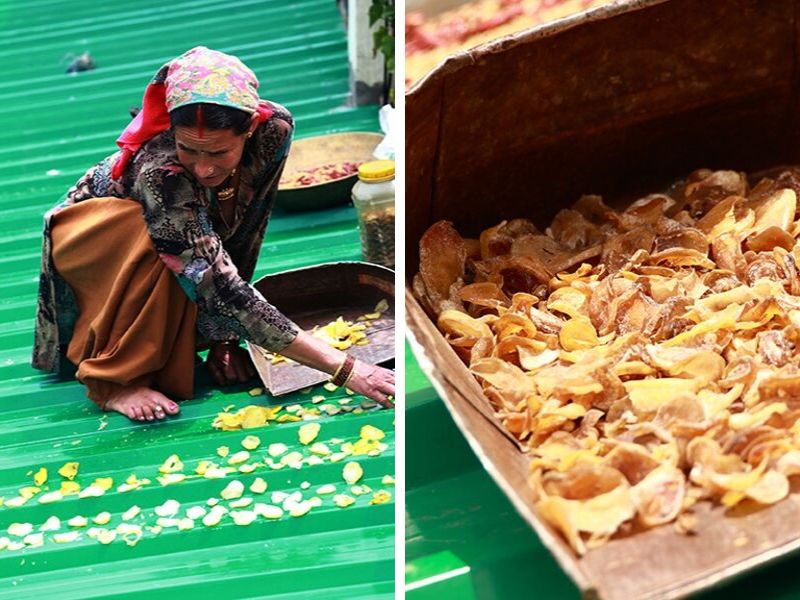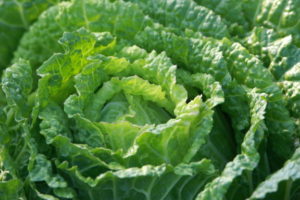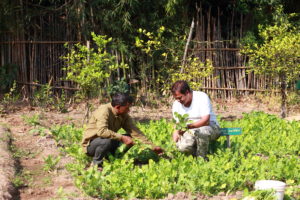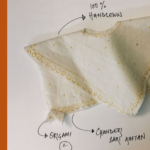Published 29 September 2019 ● Last Updated on 16 July 2020
In our quest to live a sustainable lifestyle, it is important that we focus on our food choices. What is sustainable food? How can we make better cooking and eating choices – without compromising on tradition and taste? Explore these questions – and get your answers! – through Secondsguru’s (SG) conversation with Michael Swamy, the Backpacker Chef!
An author and food stylist, the backpack chef, a wildlife photographer and a guest faculty at WGSHA Manipal (India) on Food Media – Michael Swamy dons many hats but literally wears the chef’s cap. An alumnus of Le Cordon Bleu – London, Michael has been associated with food for over 25 years. What further sets him apart is his concern for the environment and his belief that it is the need of the hour for professional chefs as well as home cooks to practice the art of sustainable cooking.

SG| Should one be more worried about the environment or about the food that we are eating?
MS| Most certainly both as they are interconnected. Today, we are seeing the effects of our years of neglect of the environment. The irony of it – our food items are contaminated with heavy metals and microplastics thanks to our actions, and we humans are eating it! Even the salt that we add to everything has microplastics in it. We use pesticides on our crops for better produce and then end up ingesting it ourselves, a big health hazard for us. What is truly organic and what isn’t – no one knows. (Take a look at guest author, Akshi Sarin’s article on Sourcing Organic Food in SG here)
Our intensive farming practices have denuded the Earth. Even the recently released IPCC Climate Change and Land Report talks about how our food habits and agricultural practices add to global warming. It is imperative that we manage our agricultural lands better, reduce food wastage and reduce our meat intake to ensure that the pressure on our soil is reduced.

We cut down forests for the need of more land – be it for housing, agriculture or fossil fuels. We don’t stop to think that where will all the animals go? And with their disappearance, will our food source get affected? People are now trying to save the bees and insects because their disappearance means pollination will get affected and this in turn will affect the creation of fruits and vegetables as we know it.
SG| So, that’s a larger world view. But when it comes to an individual, how do our food choices or the way we cook affect us and the environment?
MS| Food is a journey; when we travel we eat, when we eat we travel. It has become the epicentre of our emotions and our memories, sometimes even a standard of social standing. Plus, food is now global – everyone is eating everything! With the desire to try different cuisines whether at home or outside, people are out shopping for the newest ingredient or spending lavishly for the ‘must have dish’.
So, it is no surprise that when it comes to everyday food the very nature of how we cook and what we cook has changed over the years.
Take for instance seasonal fruits and vegetables – today, we eat what we like throughout the year because it is readily available in our supermarkets (even though it may have traveled a long distance to get there). We never stop to think that Nature might have a reason for giving us certain produce at certain times, something that our grandmothers strictly followed as it was a healthy practice.
Even the pots and pans that we cook in, our favoured non-stick pans or aluminium vessels are not as beneficial as the olden day iron and copper vessels. These had health benefits – food cooked in iron vessels had higher levels of iron in the food and copper vessels are known to increase the metabolic rate. Plus all these vessels were sturdy and would last much longer.

When it comes to cooking, one must ask: does everything need to be cooked? There is so much one can do with raw food apart from just eating it as a salad. Then, there are other tricks of cooking like cold cooking where you use natural acids to cook your food, or solar cooking that yields results as good as using an oven, except you’ve saved on energy. A lot of home chefs are trying their hand at OPOS – One Pot One Shot style of cooking too – it saves energy and time. The options are many but we need to be willing to explore.
SG| What changes do you feel we should try and incorporate in our daily cooking and food choices to be more sustainable?
MS| What we need to do is actually return to the cooking of our grandmothers and forefathers; this was in sync with Nature. We should choose to eat seasonal food as well as local produce – just because it comes from distant lands does not mean it is good for you. An avocado flown from Mexico’s not necessarily better than meat from the neighbourhood farm.
Food and the environment are co-dependent; local cuisine takes into account what is available within a specified area. It is from this practice that people developed certain food habits in earlier times. And these food habits were best suited for our bodies too!
We need to understand and practice sustainability in the way we live as well as the way we eat. The modern home cook needs to know that talking about food is not just talking about recipes, it’s talking about the geographic nature of an ingredient, its seasonality and its effect on our body.
We also need to understand how our food is grown, especially with respect to water. The amount of water that is used to grow crops like sugarcane, rice and wheat – one will be amazed! Even animal rearing needs a lot of water. With the next war predicted to be on water, it is important that we adjust our diets to use more of produce that is water-friendly and reduce our dependence on those that burden this precious resource.
It is our right to want what is good for us and our family, and for that we need to be more involved in the way we acquire our food. As consumers, we need to stand together and question what is being sold to us at supermarkets or choose to buy fresh produce from local farmers markets.

Be it a professional chef or a home cook, one can try and follow these simple process to ensure a more sustainable food experience.
- Grow your own herbs and vegetables. Urban gardening is taking off very successfully and once committed to it, one will appreciate the effort it takes to grow anything. Plus the farm to table experience is quite enjoyable!
- Think of innovative ways to use up leftovers. I like to collect my vegetable peels and puree them, add salt, sugar and spice to taste and bake them at a low temperature; they can be used for garnishing or as toppings and even in powdered form!
- Buy what you need from a farmers market or order larger quantities from a wet market suppliers
- Avoid making food in excess and if there is excess, figure out how to deal with it – feed the needy or support a soup kitchen in your area.
SG| How do you manage to incorporate all these factors into your work as a professional?
MS| I am passionate about food and nature; for me both are inter-connected. When I create something new in food, my inspiration for it is always from nature. My most recent project ‘Cooking Wild Series’ focuses on creating culinary experiences in the jungles of India.
When in these rural areas, food is as rustic as it can get. You literally go choose what you want to cook from the organic farms! The food prepared is no fuss and yet, the fulfillment it gives you while preparing as well as eating is priceless.

As chefs, we created brands and trends but it is also our responsibility to understand how environment friendly our food is. There is no use of talking about safe food practices if in reality we don’t do it ourselves.
A change in diet is definitely called for in the times to come. Eating less meat and seafood is the next step to food security and sustainability. We should be choosing local produce over products that have accumulated carbon miles by simply traveling across the globe to reach a store. We need to be more aware of our consumption of government or business controlled food items like milk and sugar.
If professional chefs as well as home cooks practice sustainable cooking, I’m sure we will be able to make a ‘culinary impact’ on climate change.
Follow Michael Swamy on FB here or visit his webpage here.
Instagram and Twitter : Themichaelswamy
Photographs taken by Michael Swamy
Related articles:



0 Comments